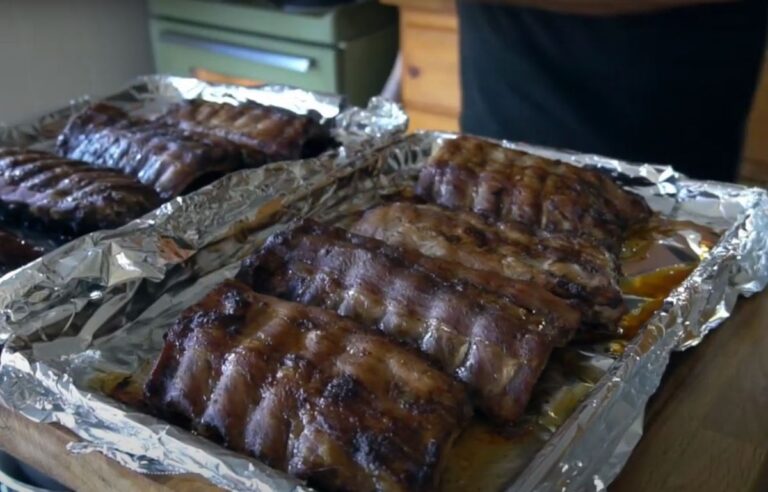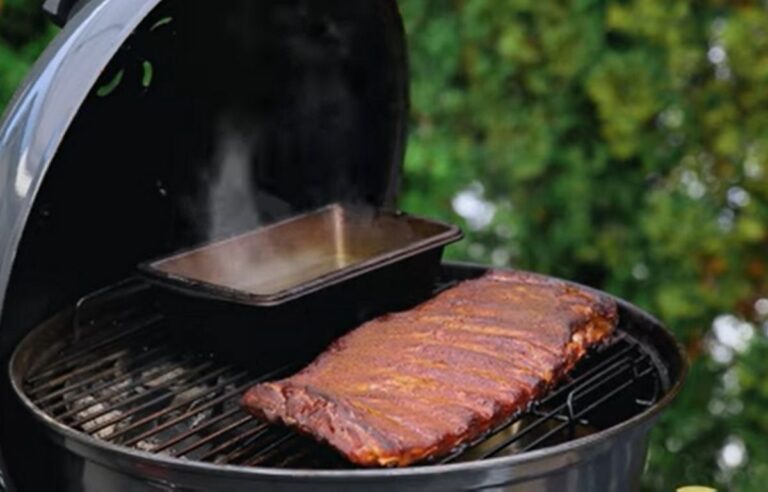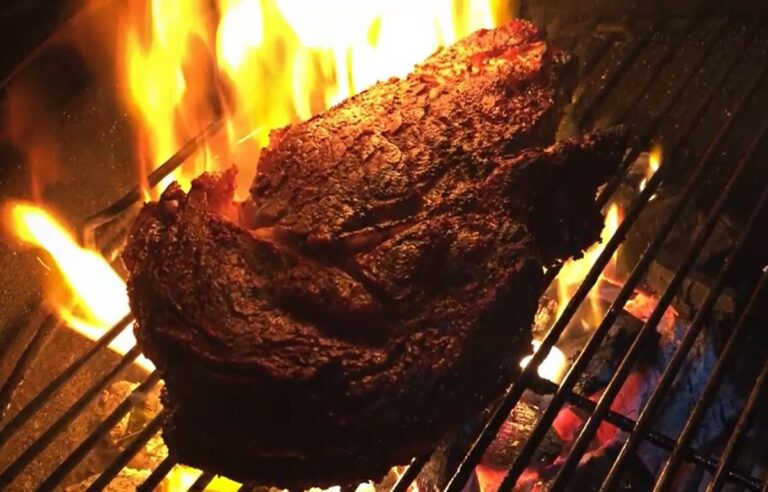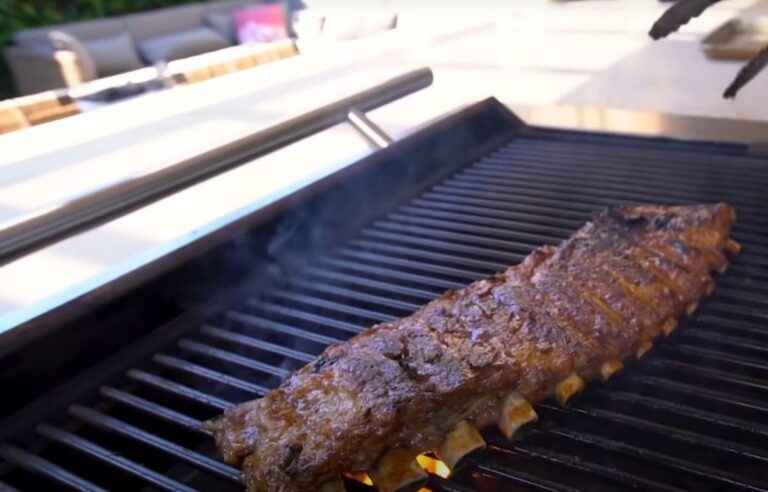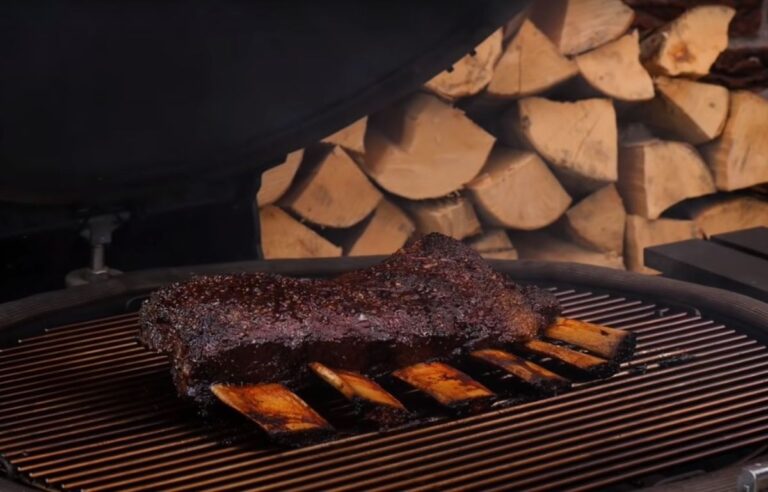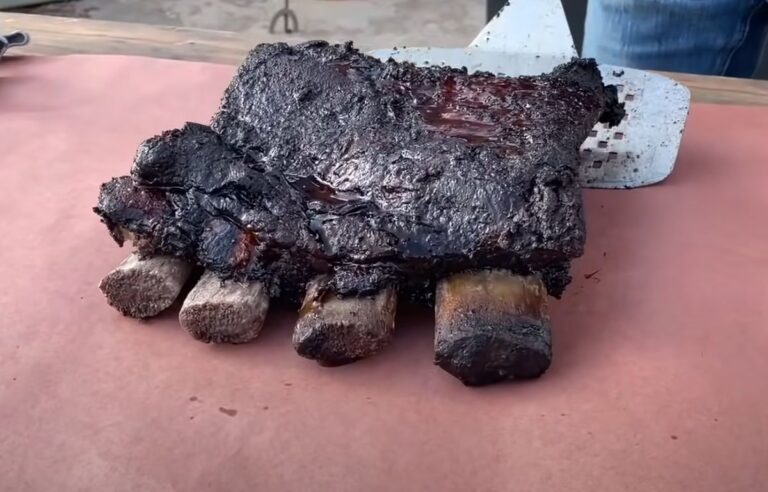Brining Ribs Before Smoking – Secret To Moist And Juicy Meat
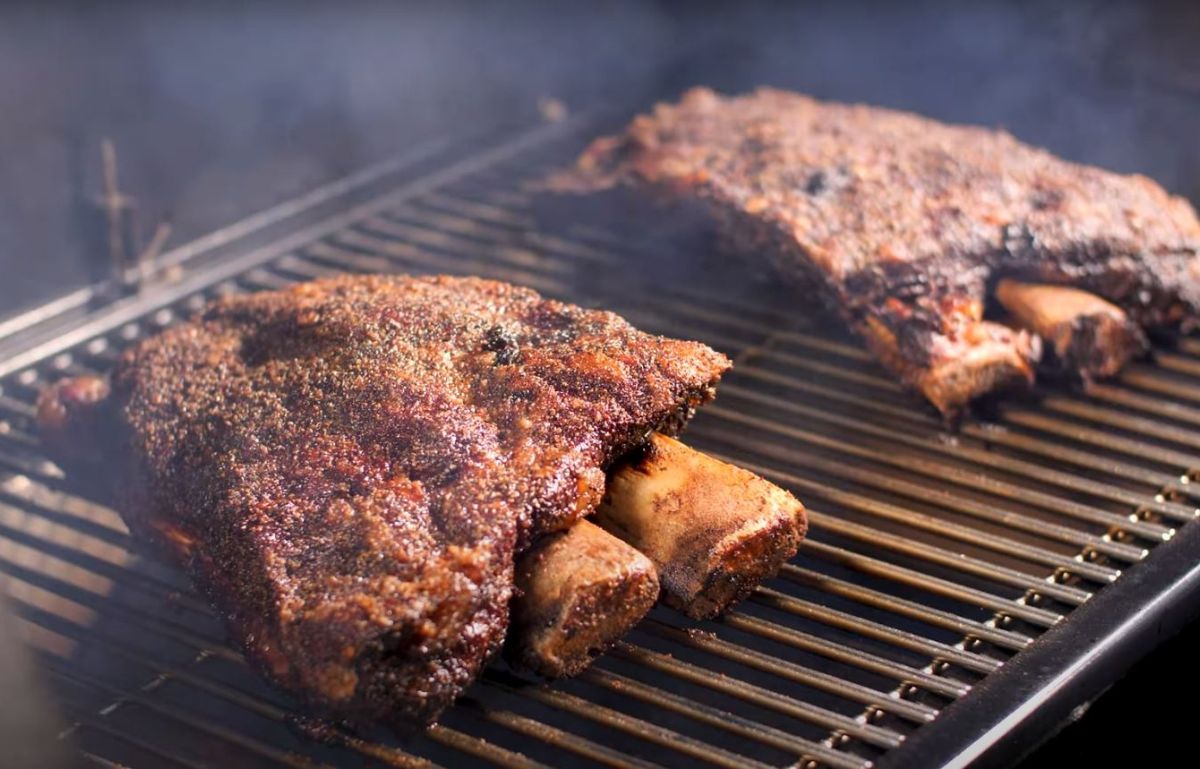
FaveGrills is reader-supported. If you purchase by clicking a link on this page, we may earn an Affiliate Commission at no extra cost. Learn more
Brining has gained a lot of attention and appreciation from BBQ enthusiasts as it can enhance the taste and flavor of your meal.
But when it comes to brining ribs before smoking, it is an optional step, but you can proceed with it if you often face the problem of completely dry or less moist ribs.
So basically, the brining is known for keeping the ribs moist, but it can also add some flavors, depending on the type and size of the ribs.
Let’s begin this guide with a quick brining overview, and later, we’ll go through how to brine the ribs along with its benefits and drawbacks.
Key Takeaway
Brining ribs means soaking the meat cuts in a saltwater solution or just sprinkling salt on either side of the ribs. Brining before smoking is not mandatory but can make your meat more moist and flavorful. You should brine your ribs for at least 4 to 6 hours in the refrigerator or overnight for even better results.
Brining The Ribs – A Detailed Overview
The brining refers to immersing your different kinds of meat into a generous amount of salt. It is an admirable process when it comes to adding moisture, unique flavors, and a reasonable amount of tenderness to your certain meat.
We appreciate meat brining because it can keep thick cuts of meat moist from all the parts even after you cook it for hours at a lower temperature.
There are two primary types you can choose to brine ribs before cooking.
Wet brine Ribs
It is the process of submerging the ribs in a saltwater solution that contains some other ingredients as well, such as sugar, herbs, or spices.
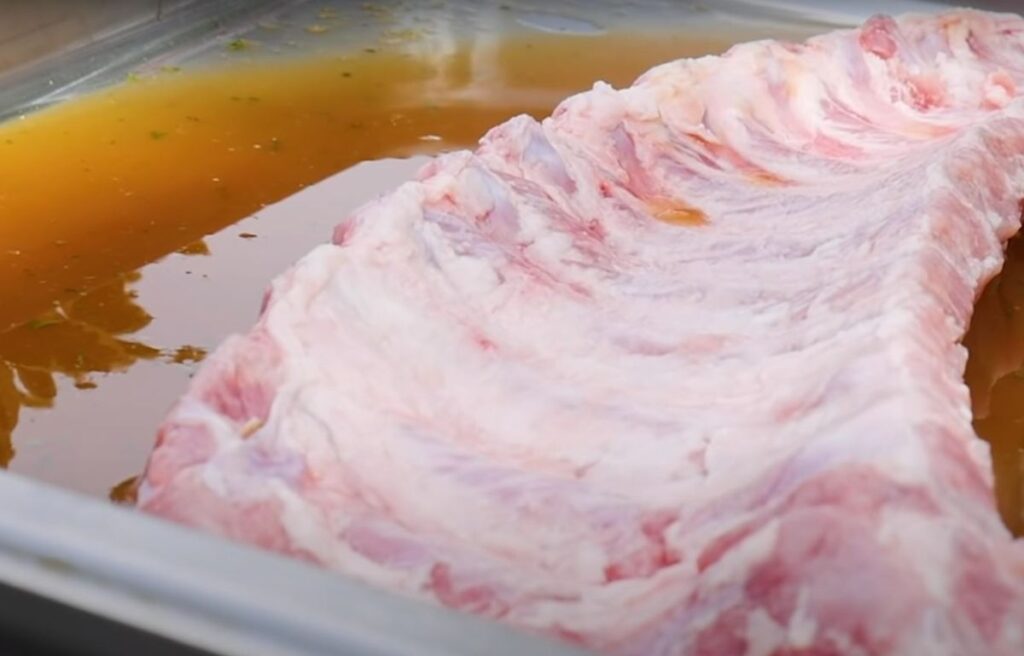
In our opinion, wet brining is more beneficial as it not only enhances the flavor or taste but also keeps them moist throughout the cooking process.
Moreover, when you wet brine beef ribs, the time depends on the ribs’ size and thickness. Generally, a few hours are enough, but we suggest you to keep them inside the solution overnight for better results.
Dry brine ribs
On the other hand, dry brining is a procedure in which you rub the ribs nicely with a brine mixture of salt and other suitable seasonings.
After making the rub, you need to apply it to all sides of the ribs, ensuring that each part of the meat gets covered with the rub.
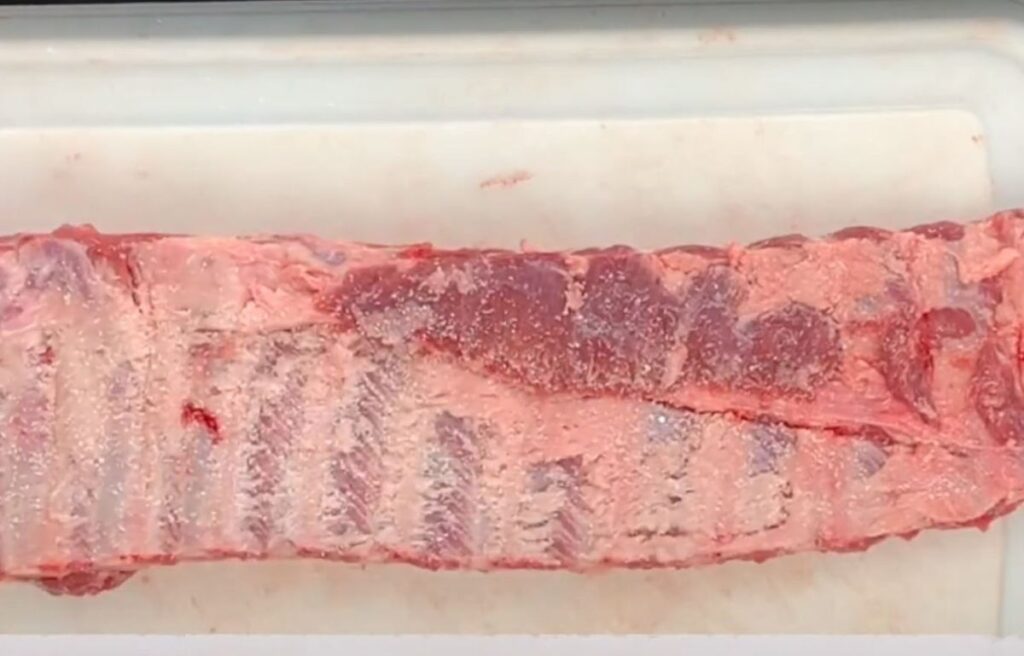
When you apply dry brine rub to the ribs, a few hours are enough to let the meat absorb the herbs and spices nicely to make the outcome more delicious and flavorful.
So, we can now conclude that brining can be beneficial for BBQ lovers who enjoy eating food with extra moisture, rich flavors, and improved tenderness.
Do You Know?
If you choose to wet-brine your ribs, keep in mind that it may sometimes prolong the smoking session. The reason is that ribs are moist by nature, and if you further keep them in a liquid solution for hours, they may require more time to evaporate the moisture.
How Is Brining Different From Marinating?
The goal of both marinating and brining can be the same because they intend to add extra flavor, moisture, or deliciousness to your meat, whether ribs or whole chicken.
But there are some noticeable and apparent differences between these two methods that set them apart from each other.
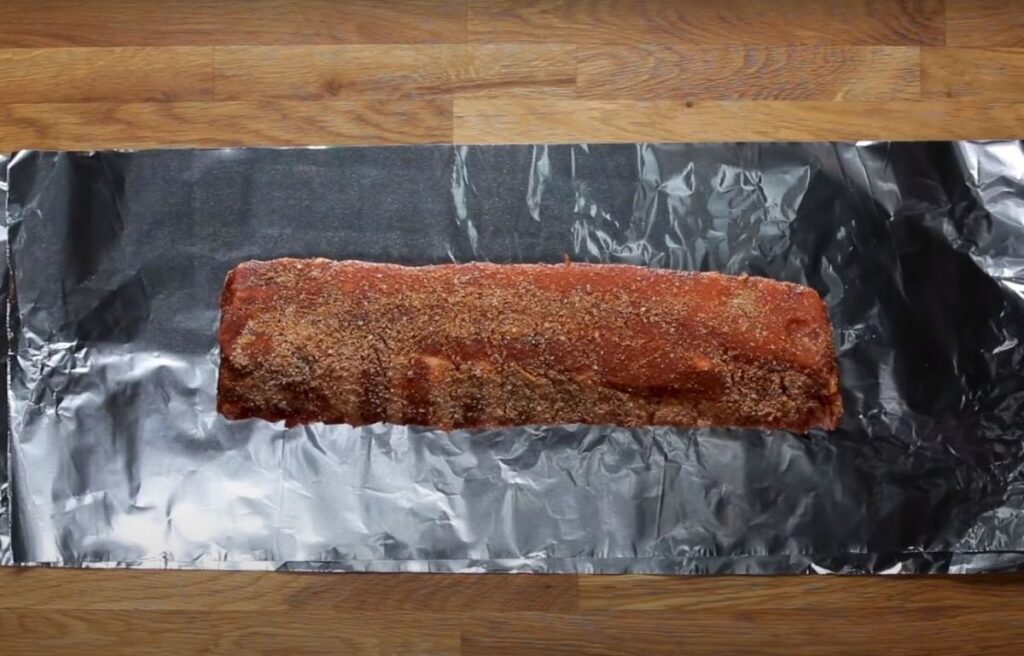
Firstly, when marinating meat, you use different kinds of herbs, spices, salt, and acidic liquids such as apple cider vinegar, apple juice, and some other citrus juices.
On the other hand, for brining, you usually require a solution of salt water in which you can also include your favorite spices, barbecue sauce, or herbs.
So, the major difference between marinating and brining is what ingredients you use to make them.
Moreover, the significant impact of marinating is to enhance the flavor profile of your meat. Conversely, brining before smoking ribs brings more moisture than flavors or taste to the ribs, even if you have smoked them for hours.
The reason is that when you brine meat, there is more use of saltwater than spices.
Another signature difference between these two processes is that if you decide to brine your meat, you can do that for a day or overnight without compromising its quality.
On the other hand, marinating is suitable for a shorter period, and if you keep them in the marinade for too long, you may get an undesirable outcome.
So overall, the intent to marinate or brine the ribs can be similar (enhancing the outcome), but they are totally different from each other.
Advantages Of Brining Ribs
You can have multiple advantages if you brine your beef and other ribs before smoking them. Let’s highlight some of them.
- It can enhane the flavor and overall taste of your smoked ribs if you use different ingredients along with salt and water.
- Brining is helpful in keeping the ribs moist even if you smoke them at a lower temperature for hours because it also uses liquid solutions.
- If you prefer tenderness and are willing to smoke leaner cuts of ribs, you can achieve it by properly brining them before putting them inside the smoker.
- As mentioned above, there are two primary types of brining. So, if you want a crispy texture on the ribs, dry brine can be helpful for you to accomplish this task.
Disadvantages Of Brining Ribs
We came across some drawbacks (mentioned below) of brining ribs that you might also face.
- Compared to marinating, it is a time-consuming process, and also the ribs can take hours to smoke to perfection.
- There is a possibility that the rib’s smoking duration will increase if you have brined them first because they are naturally moist.
- If you first apply your favorite spices and rub over the ribs and then coat them with brining material, the meat can become over-salty, so special care is required.
You Might Also Like
If you love to smoke ribs, we endorse you to go through our posts regarding smoking ribs at different heat settings.
How Long To Brine Ribs Before Smoking?
At least four to six hours of duration is enough to keep your ribs brined, but if you have time and want to enhance the overall taste and flavor profile of the meat, you can do it overnight or a day before smoking.
How To Brine Ribs?
It is pretty straightforward to brine ribs, for which you will need to follow the steps we have mentioned below.
Create Saltwater
The most important yet core step for brining is to make the solution using wet and dry ingredients. We suggest mixing salt and water to create a simple saltwater solution, and it offers perfect results.
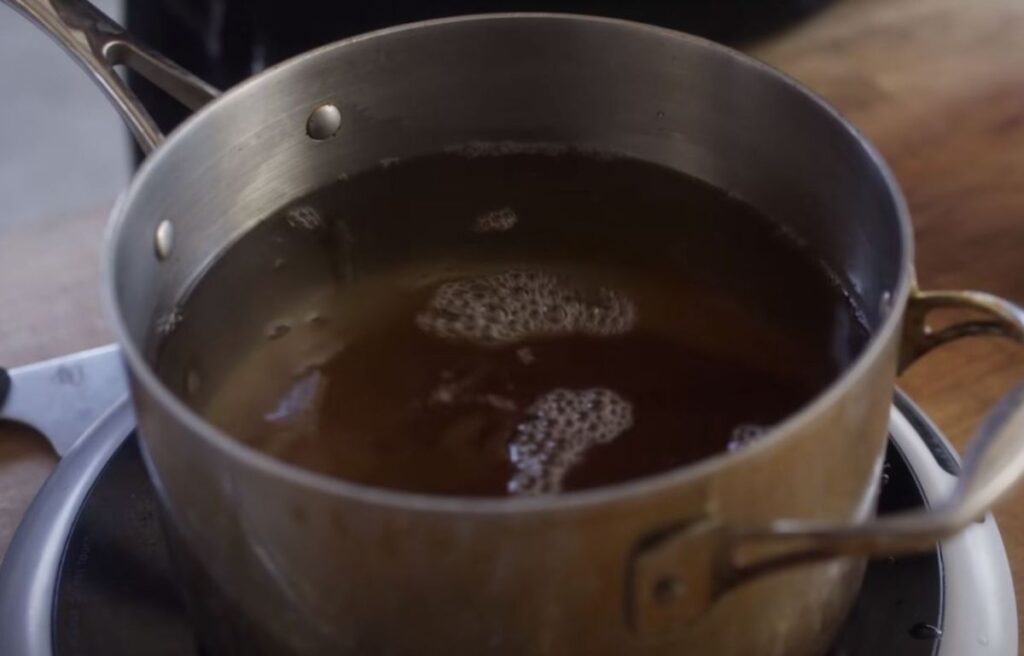
Normally, you need to mix 1 cup of salt with one gallon of water, but the amount depends on the taste and personal preferences. Moreover, you can add your favorite spices or herbs per the requirements to enhance the flavor.
Dissolving the Mixture
The next step is to dissolve the saltwater solution for which you need to boil it. If you try boiling the whole thing together, it can consume a lot of time.
Therefore, we recommend you mix up the salt in 2 cups of water and boil it till perfection, and then later, include the rest of the water in it, which can save you time.
Placing Brined Ribs In a Container
Once the dissolving process is completed, you can proceed to place the brined ribs in a suitable container, for which stainless steel and plastic containers are suitable options.
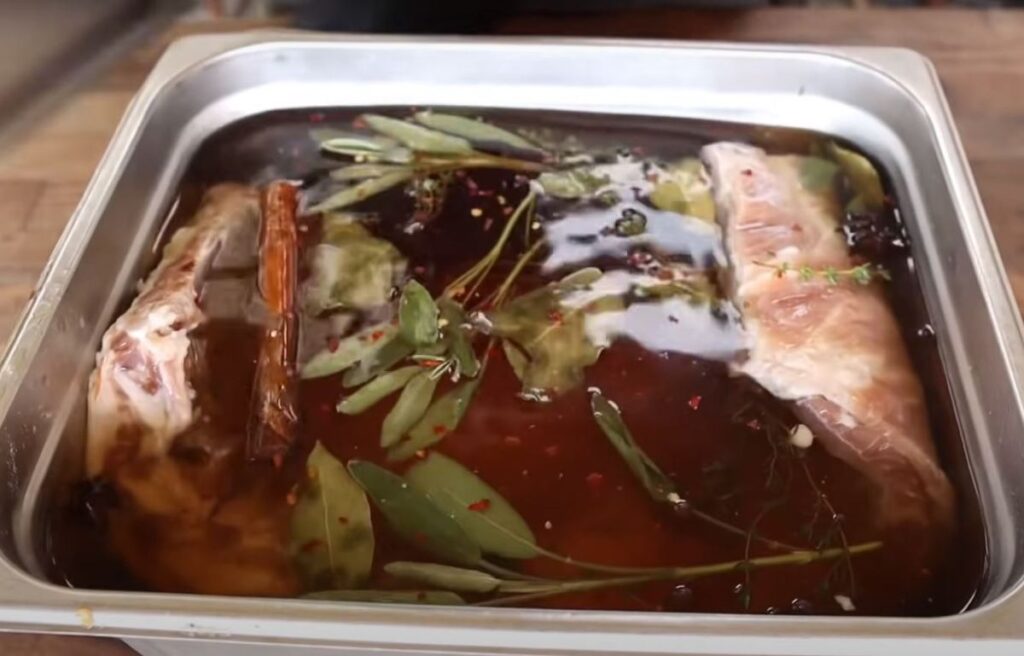
Most importantly, choose a container that is large enough to hold the ribs comfortably, and you can submerge them in the brine solution with convenience.
Brine the ribs
Now, it is time to brine ribs, for which you can follow two methods. You can either refrigerate the brine only first until it becomes reasonably cold and then add ribs into it or brine the ribs directly in the solution and let it refrigerate.
Remember that you can use the same container you used for the brining process. Lastly, the brined ribs should rest for at least 4 to 5 hours inside the refrigerator, but we suggest you should do it overnight for perfectly moist meat.
How To Dry-Brine Ribs: A Step-by-Step Guide
Compared to wet-brining, it is simpler and less time-consuming because you don’t need to create a solution or dissolve something. Follow the steps given below to successfully dry-brine your favorite ribs.
Start by trimming off any extra fat or membrane through knife and paper towels so that you can nicely season the ribs.
When the trimming part is done, simply apply the required amount of salt on all sides of the meat, ensuring that none of the parts is uncovered from the salt.
It might be optional, but you can also sprinkle your favorite spices like smoked paprika, chili powder, and onion powder to get an extra layer of flavor and deliciousness.
After nicely seasoning the ribs, place them over a clean baking sheet and place them inside the refrigerator for at least an hour or two.
Remove the dry-brined ribs after refrigerating and cook them with your preferred method, smoking or grilling. You can also rinse the brine first from the ribs before you cook them.
Wrapping It Up
Brining different types of ribs before smoking them is not a necessary step, like marinating, but we admire this process due to its ability to keep the ribs moist and flavorful.
To cut it short, there are two primary types of brining, wet and dry brining, as we have discussed above, and both are beneficial in their own way, but we suggest you try out the wet method.
Enjoy perfectly smoked brined ribs!
Your Opinion Is Valuable To Us
We hope this guide brings you valuable information regarding brining ribs. Would you like to brine your ribs in the future? If you have any queries or suggestions, share them in the comments box below.
Frequently Asked Questions
Do you rinse brine off ribs before cooking?
Yes, you can rinse the brine off ribs before cooking them, as it can help in preventing the meat from becoming over-salty. After rinsing, you can add ingredients like brown or white sugar, black pepper, and smoked paprika.
Does brining ribs make them more tender?
Although the primary purpose of brining is to keep the meat moist, but if you create a saltwater solution with some of your favorite rubs and spices, you can make them more tender.
Is it better to wet brine or dry brine ribs?
Wet brine gives better results than dry ones because it is essential to mix the salt in water in order to keep the ribs moist. In contrast, the dry brine can help enhance the taste and make its texture crispy.

